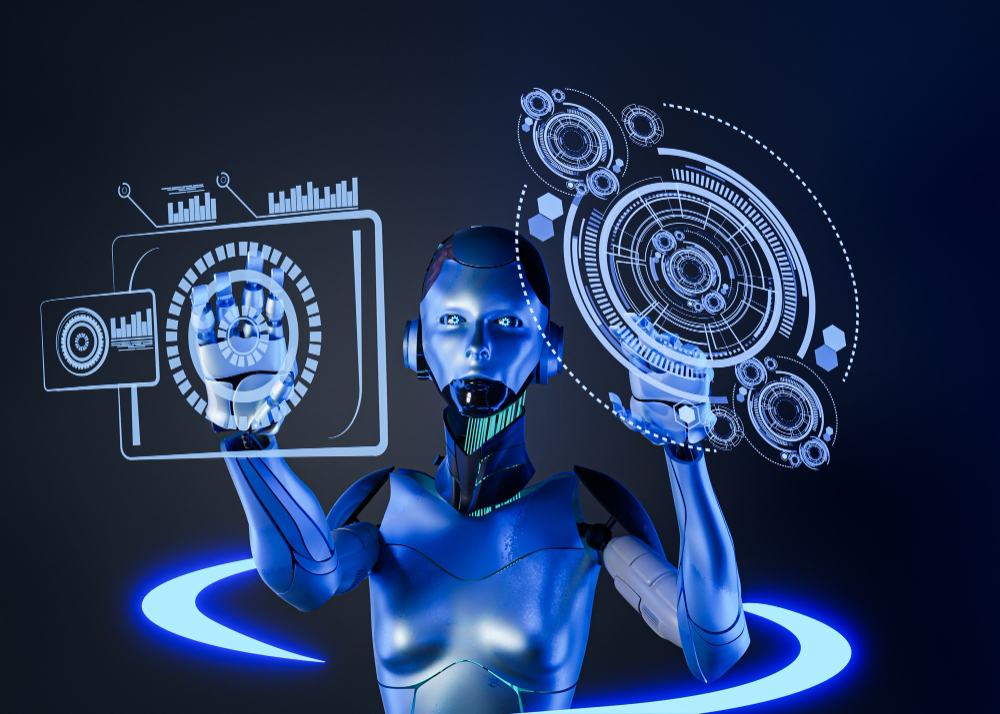How AI, NLP, and Generative Tech Are Shaping the Next-Gen Chatbot Development Companies
Introduction The future of customer experience, workflow automation, and real-time business support is being rewritten by cutting-edge innovations like generative...

Introduction
The future of customer experience, workflow automation, and real-time business support is being rewritten by cutting-edge innovations like generative AI, natural language processing (NLP), and predictive ML models. In this rapidly evolving landscape, companies specializing in chatbot development aren’t just writing scripts—they’re engineering human-like conversational systems that learn, adapt, and deliver at scale.
If you’re a business evaluating the need for a smarter, more capable customer engagement layer, understanding how a leading artificial intelligence chatbot development company operates in 2025 is critical to your strategy.
What’s Changing in AI Chatbot Technology?
1. Shift from Rule-Based to Generative Bots
Traditional bots followed predefined workflows and struggled with dynamic inputs. Today, generative AI allows chatbots to create human-like responses on the fly, understand context, and deliver adaptive conversations that feel natural.
2. Deep NLP Integration
Modern chatbots use NLP to grasp not only language structure but also sentiment, tone, and user intent—enabling more empathetic and precise responses, especially in industries like healthcare, eCommerce, and SaaS.
3. Cloud-Native & API-First Architecture
Today’s chatbots live in the cloud and seamlessly integrate with CRMs, payment gateways, ERP systems, and more through robust APIs—supporting real-time business logic and automation.
What to Expect from a Future-Ready Chatbot Development Company
A top-tier artificial intelligence chatbot development company doesn’t just build bots—it delivers full ecosystems that combine data, user experience, and AI capabilities into one intelligent system. Here’s what defines the best in 2025:
✅ 1. Omnichannel Capability
Leading companies develop bots that work consistently across web apps, mobile apps, WhatsApp, Slack, Messenger, and even voice interfaces.
✅ 2. Data-Driven Customization
Top firms build AI chatbots with dynamic learning models that evolve with every user interaction, creating deeply personalized user journeys.
✅ 3. Security & Compliance
From HIPAA in healthcare to PCI DSS in finance, today’s chatbot systems are fully aligned with industry-specific compliance needs—ensuring secure data handling at every step.
✅ 4. Low-Code, No-Code Interfaces
To empower businesses, development companies are integrating user-friendly dashboards for editing bot flows, training data, and managing workflows with minimal technical effort.
Use Cases Across Industries
Retail & eCommerce
AI chatbots offer personalized product suggestions, handle order queries, manage returns, and increase cart conversion by engaging abandoned users.
Healthcare
Intelligent bots handle appointment bookings, pre-diagnosis Q&As, follow-up reminders, and even post-treatment feedback—all HIPAA-compliant.
Banking & Insurance
AI-powered bots provide real-time loan eligibility checks, customer KYC updates, claim statuses, and financial advisory services through secure channels.
SaaS Platforms
B2B SaaS companies use chatbots for onboarding, usage tutorials, in-app support, and proactive engagement—all tailored to user personas.
Why Businesses Choose Custom AI Chatbot Development
While off-the-shelf bots may seem easy to launch, they fall short on depth, context, and integration. Partnering with a dedicated AI chatbot development company offers:
- Fully customizable conversational flows
- Backend integrations with existing systems
- Scalable frameworks for growing businesses
- Ongoing model training and optimization
Companies looking for long-term ROI are prioritizing bespoke AI chatbot development services that align with business goals and customer behavior.
Key Technologies Powering Today’s Chatbots
- LLMs (Large Language Models): GPT, Claude, Mistral, LLaMA for natural response generation
- Vector Search Engines: For conversational memory and semantic retrieval
- Real-Time Analytics Dashboards: For insights into user intent, drop-offs, and engagement
- Voice AI: Combining NLP with TTS/ASR to support voice-enabled bots
- Reinforcement Learning: For bots that learn from feedback and adapt over time
Selecting the Right Chatbot Development Partner
Look for a company that offers:
- Proven expertise in NLP, ML, and conversational design
- A strong portfolio with real-world industry deployments
- Transparent pricing and agile development processes
- Strong support for custom integrations and model updates
- Proactive security compliance and testing standards
Firms that can build intelligent, secure, and scalable systems will help your business stand out in a noisy, bot-saturated marketplace.
Conclusion
The demand for intelligent, human-like interaction continues to rise. Businesses that invest in custom chatbot solutions will lead in customer experience, operational agility, and brand engagement. Choosing the right artificial intelligence chatbot development company means building future-ready communication systems tailored to your users and goals.
As generative AI and intelligent automation grow more sophisticated, chatbots will evolve from support tools into proactive, decision-making assistants—shaping the next era of digital business.



